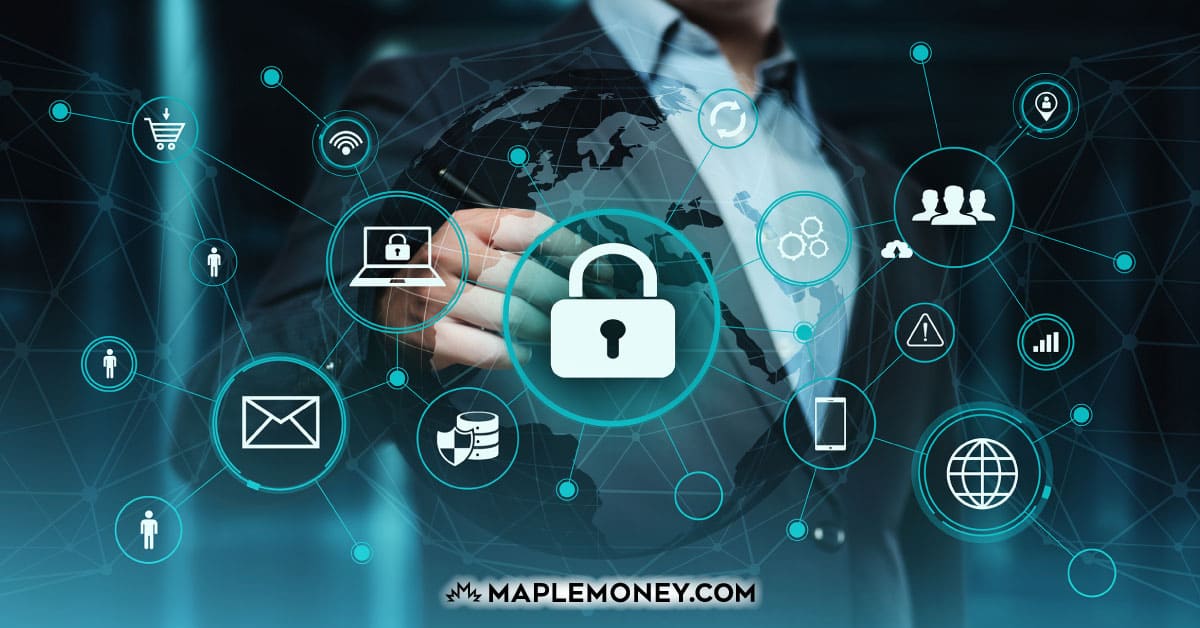How to Protect Your Digital Assets in Case of an Emergency

Digital assets have become more common in Canada, whether you’re buying crypto, buying an NBA TopShot trading card from Vancouver company Dapper Labs, or maybe even buying an NFT (non-fungible token) of an unreleased song from The Weeknd.
As more Canadians collect digital assets alongside their traditional financial assets, it brings up an interesting question: do we know what happens to those assets in an emergency? A new study commissioned by Willful with AngusReid says no: 44% of Canadians don’t know what happens to someone’s cryptocurrency if the holder passes away.
I’m the CEO at Willful, an online will provider and MapleMoney partner (read a full MapleMoney review of Willful here). I spend a lot of time thinking about how Canadians can create comprehensive end-of-life and emergency plans, and pass things on easily to their loved ones. We surveyed Willful customers and found that 21% own cryptocurrency today, 26% plan to buy crypto in the future, and 23% have included investment in digital assets in their 2021 investment strategy. But only 11% have an emergency plan for their digital assets (which don’t just include crypto – digital assets could include anything from domain names to music to digital investments). Whether you hold digital assets now, or you plan to in future, there are some steps you can follow to ensure your digital assets are covered if anything happens.
1. Create a will and power of attorney documents that outline who makes decisions about digital assets, and where they go
The first step to having a solid emergency plan in place is to get a will and power of attorney documents. The majority of Canadian adults don’t have a will, which is a simple legal document that outlines who gets your assets when you pass away, and that appoints key roles like a guardian for minor children, and an executor (the person who will act on your behalf to wrap up your estate).
A power of attorney document is equally as important, but different – it only comes into effect while you’re still alive but incapacitated due to illness or injury. While hopefully, that’s never the case, if anything did happen, the attorney (this doesn’t refer to a lawyer; this can be anyone) whom you appoint in your POA will be able to manage your finances on your behalf.
Many crypto exchanges and digital asset providers require a copy of a will or POA document before they will confirm the existence of assets and allow your executor to transfer them, and without a will or power of attorney, the courts have to appoint those roles, and it slows down the whole process. In addition, if you don’t have a will a government formula will dictate how your assets are distributed to your heirs (whether digital or traditional).
A will ensures you’re in the driver’s seat, and that your assets of any kind will go to the people you want them to. You can create a will online in 20 minutes for $99 with Willful (save 15% with code MAPLEMONEY), or you can visit a lawyer to get it done.
2. Create an up-to-date asset list that includes digital assets
While your will outlines who gets your stuff and who will act on your behalf when you pass away, it typically doesn’t include a detailed asset listing or instructions on how to access digital assets. This means that your family and/or executor are typically scrambling to figure out what assets you held – and it’s not as simple as 30 years ago when we all banked with one institution. I have several different investment apps on my phone, from Moka to Wealthsimple to Coinsquare, plus several bank accounts and digital assets, so it’s more difficult than ever to create a full list of assets without assistance.
The first step is to ensure your family and/or executor knows you hold digital assets like crypto. Creating a list of your assets and storing it alongside your will, and keeping it up-to-date on an annual basis, is the easiest way to ensure your family will have a current picture of your holdings.
If you own crypto or other digital assets and your family isn’t aware, there’s no central body to call to check – the point of crypto is that it’s decentralized, which means there’s no 1-800 customer service line to call and ask if your relative held any.
3. Make a plan for your passwords and account access
Many people use a crypto exchange like Coinsquare to manage crypto assets, which means an executor can deal directly with that provider after someone passes away. Let’s say I own cryptocurrency, and I use an app like Coinsquare to manage it. If I pass away, and I haven’t shared that password with my executor – but thankfully they know I have an account, so they reach out to Coinsquare’s team to start the process of transferring the crypto (which involves sharing a copy of the will and proving their ability to act on my behalf).
For those who don’t use an app like this, it requires a 42-digital private key to access their crypto – and without that key, there is zero recourse. If I don’t use a platform like Coinsquare, and my executor doesn’t know my private key, there’s zero chance they can recover those funds. So it’s more important than ever to provide access details, and our survey found that only 50% of people have someone in their life who knows all their passwords.
I use 1Password to store everything from social media logins to my email password to my investment account access details, and I’ve shared access with my executor. This is an easy way to ensure that a trusted contact would have access in an emergency.
Unfortunately, most platforms prohibit someone else impersonating you to access your accounts, but many also don’t have posted death policies that make it easy to transfer assets after someone passes – so until then, a shared password manager gives me peace of mind that someone would have access.
Take a few minutes to plan now, and have peace of mind in future
In our survey, 39% of respondents said they hadn’t created an emergency plan because they just hadn’t thought about it – which is fair, since it’s not the first thing that comes to mind when you buy your first Bitcoin. But we’re in the middle of the largest wealth transfer in Canadian history, so it’s more important than ever to have a plan in place for the unexpected. These tips should hopefully point you in the right direction to ensure your digital and traditional assets are protected.

